Subscribe to the Newsletter
Your cart is empty
Shop now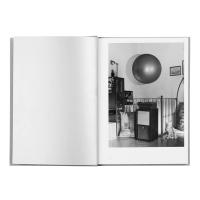

In Focus: Photobooks by Luca Iovino, Melanie Schoeniger, Kincső Bede and Juan Brenner
The latest finds from our community artists’ photobooks
“In Focus” is a quarterly series of reviews in which we hunt down and peruse the worthy publications off the shelves of our community artists. Each month, Der Greif is selecting a set of photobooks from our talents’ pool. Compiled here are the most recent releases from our community artists Luca Iovino, Melanie Schoeniger, Kincső Bede and Juan Brenner.
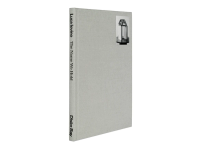
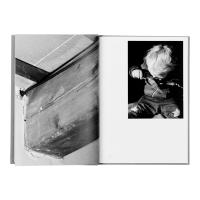
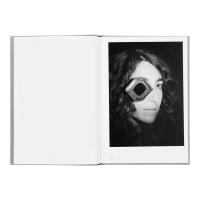
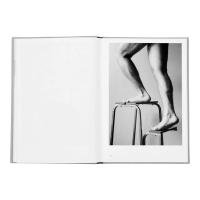




In “The Name We Hold”, Luca Iovino masterfully uses black-and-white photography to evoke a rhythm and depth that underscore the book's dark, mysterious themes. Through these tonal contrasts, Iovino probes the idea of memory – questioning its location and essence. His exploration unfolds within a symbolic boundary that prompts readers to reflect on memory's residence: is it within individuals, their physical surroundings, or perhaps within the dreamlike, surreal layers of reality itself? Iovino’s photography creates a visual space to confront these ideas, linking them to concepts of home, belonging, and security amidst life’s inevitable transitions. The notion of “home” in “The Name We Hold” transcends physical space, expanding into a broader universe woven with meaningful objects, familiar roads, and repetitive routines. These elements become markers of comfort and identity, inviting a reinterpretation of what constitutes a personal sanctuary. Reflecting on his own experience of leaving a cherished home, Iovino recounts, “Before leaving my old home, I took the time to look at my surroundings with fresh eyes... My family, the round mirror, the ball: how could I move them and extract them from their familiar universe?” This introspective moment becomes a narrative guide, framing his imagery as both a farewell and a hopeful reimagining, as he transforms fear into creative possibility.
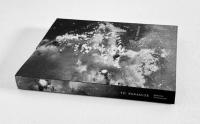
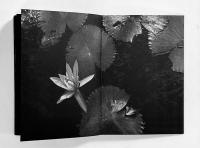
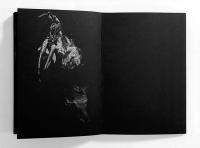
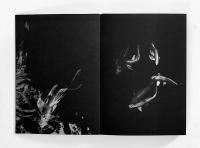




“My paradise is a dark forest, a place that instead of causing us fear, feels safe and intimate, prioritizing a sense of participation over observation,” states artist Melanie Schoeniger to introduce her recently self-published photobook “To Paradise”. The photobook is an immersive, sensory journey into her personal vision of paradise, one that diverges from traditional ideas of beauty or brightness. For Schoeniger, paradise exists within a dark forest, a place that – rather than invoking fear – invites intimacy and connection. She describes this forest as a space where the boundary between self and surroundings dissolves, fostering a sense of active participation rather than passive observation. This idea forms the core of her recently self-published photobook, which captures the paradoxical comfort of darkness and the peaceful unity found within it. The book itself is a carefully crafted object, with full-bleed photographs printed on black paper, creating a visual experience that resonates with Schoeniger’s theme. Bound using linen threads and beeswax, the tactile elements enhance the viewer's engagement, embodying a natural, grounded feeling that complements the serene wilderness depicted in her images. Each page evokes a sense of immersion in an edenic space, where shadows and light blend seamlessly. These images serve as metaphors for a transcendent state of mind, symbolizing a journey toward wholeness and unity. Schoeniger’s work invites viewers to embrace darkness as a sanctuary, suggesting that paradise might lie in the acceptance of our innermost, hidden landscapes.
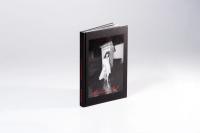
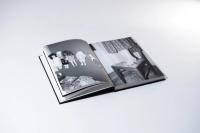
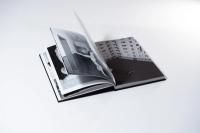
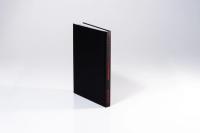




Kincső Bede’s “Porcelain and Wool” is a striking visual narrative that merges the socialist legacy of a bygone era with the rich tapestry of traditional Székely motifs, reflecting the artist's own cultural heritage. Through a series of carefully staged photographs, Bede explores the intricate systems of thought and customs unique to the Hungarian Székely minority in Transylvania, Romania. Each image serves as a vignette, capturing both personal memories and a collective sense of cultural belonging, embedded within objects and rituals of daily life. Symbols of resilience and identity punctuate the work, each hinting at a nuanced connection to the past. Bede's photobook intertwines fashion photography aesthetics with a brooding domestic narrative, creating an atmosphere that feels both intimate and slightly foreboding. Dark, moody tones juxtapose with delicate compositions, inviting the viewer into a world where memory and heritage are continually negotiated. Published by hECTIC bOOKs, Porcelain and Wool is among the first releases of this new publishing house, founded in Budapest by photographer Bence Kovács and curator Tímea Urbantsok. Their mission is to amplify emerging voices like Bede's, showcasing works that probe the boundaries of identity, history, and visual storytelling within a Central and Eastern European context.
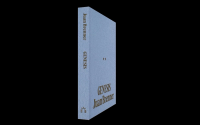
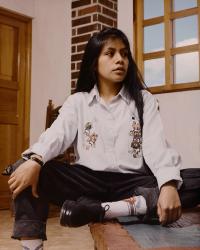
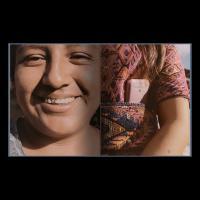
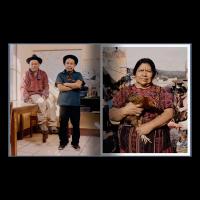




Juan Brenner’s “Genesis” is a profound exploration of the people and culture of the Guatemalan Highlands, capturing the spirit and resilience of this unique region. Spanning over five years of dedicated work, Brenner’s book presents an in-depth visual documentation of the Highland area and its inhabitants, with a particular focus on youth culture – a generation that is forging new connections and dialogues with the world beyond. As the first Guatemalan youth to communicate in an intelligible way with global contemporaries, this generation serves as a bridge between traditional culture and the broader global landscape. “Genesis” stands as an extensive sociocultural study, offering viewers an intimate look into the complexities, nuances, and histories of Highland society. Through his lens, Brenner reveals the everyday lives and evolving identities of his subjects, portraying a territory in the midst of transformation. Each photograph serves as both an archival document and a deeply personal narrative, collectively illustrating the “process of becoming” that defines this dynamic generation. Brenner’s work transcends mere observation, aiming to capture a crucial moment in Guatemala’s cultural evolution. “Genesis” ultimately reflects the beauty, challenges, and potential of a society balancing heritage and contemporary aspirations.